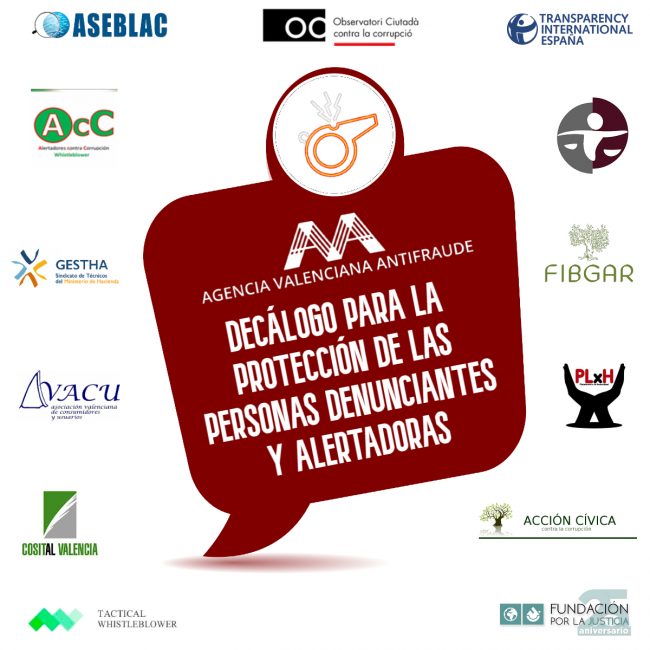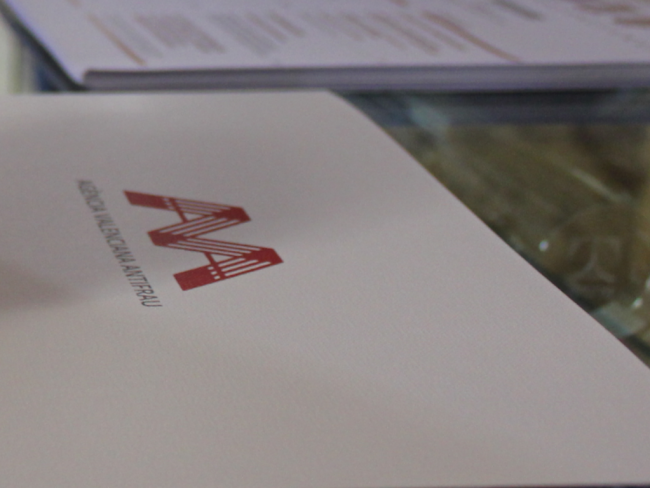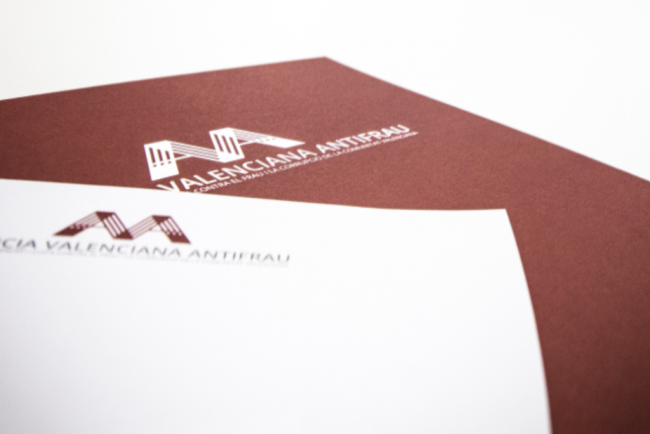The Participation Council of the Valencian Anti-Fraud Agency approves a decalogue of principles to protect people who report corruption
Valencia, October 30, 2020.- A total of 14 entities and associations belonging to the Participation Council of the Valencian Antifraud Agency have approved a decalogue of principles that should govern the protection of whistleblowers and corruption alerters.
These ten principles have been elaborated by the working group on the protection of whistleblowers and were submitted to the Plenary of the Council for approval.
These principles affect some of the aspects that most affect the protection of complainants, such as the need for advice, the installation of safe and accessible complaint mailboxes, guaranteeing confidentiality or the prohibition of retaliation.
Other principles collected refer to the figure of the repentant person; the admission of anonymity in complaints or alerts, or the establishment of sanctions for retaliators.
This decalogue also refers to aspects that should be included in the work of transposition into the Spanish legal system of the European Directive 2019/1037 for the protection of people who report violations of European Union law known as the “Whistleblowers Directive”.
Thus, issues such as the delimitation of the twelve areas of protection or the need for the protection strategy to be extended to both the public and private sectors are proposed. The Council will send the decalogue to the working group of the Ministry of Justice that has begun the work of transposition of said directive.
The entities that have signed this decalogue are the following:
• COSITAL Valencia
• Observatori Ciutadà Contra la Corrupció (OCC)
• Foundation for Justice
• Tactical Whistleblowers
• Transparency International Spain
• Valencian Association of Consumers and Users (AVACU)
• Spanish Association of Obliged Subjects in the Prevention of Money Laundering (ASEBLAC)
• International Baltasar Garzón Foundation (FIBGAR)
• Warning against Corruption, Whistle Blower
• Civic Action against Corruption
• Platform for Honesty (PlxH)
• Ciutadana Castelló Platform for Justice and Against Corruption
• Union of Technicians of the Ministry of Finance (GESTHA).
| Editable note in ODT format | |
| Editable note in DOC format | |
| Decalogue of principles to protect people who report corruption |




